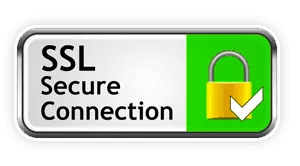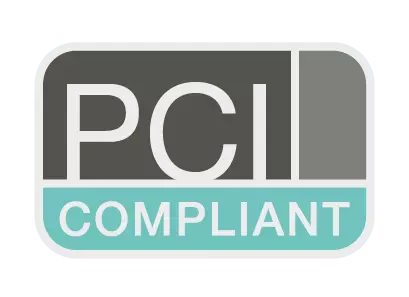John Deere 329D and 333D Compact Track Loader Operator's Manual (OMT253017)
Catalog:
Price: US$ 29.00
John Deere 329D and 333D Compact Track Loader Operator's Manual (OMT253017)
OMT253017 - John Deere 329D and 333D Compact Track Loader Operator's Manual.PDF
Operator's Manuals for John Deere 329D and 333D Compact Track Loader, with all the shop information to maintain and operate your loader.
Total Pages: 410 pages
File Format: PDF (bookmarked, ToC, Searchable, Printable, high quality)
Language: English
omt253017 - 329D and 333D Compact Track Loader
Table of Contents
Foreword
IMPORTANT
EPA Non-road Emissions Control Warranty Statement—Compression Ignition
CARB Non-road Emissions Control Warranty Statement—Compression Ignition
Technical Information Feedback Form
Section 1-1: Safety—Safety and Operator Conveniences
Safety and Operator Convenience Features
Section 1-2: Safety—General Precautions
Recognize Safety Information
Follow Safety Instructions
Operate Only If Qualified
Wear Protective Equipment
Avoid Unauthorized Machine Modifications
Inspect Machine
Stay Clear of Moving Parts
Avoid High-Pressure Fluids
Avoid High-Pressure Oils
Work In Ventilated Area
Prevent Fires
Prevent Battery Explosions
Handle Chemical Products Safely
Dispose of Waste Properly
Prepare for Emergencies
Clean Debris from Machine
Section 1-3: Safety—Operating Precautions
Use Steps and Handholds Correctly
Start Only From Operator's Seat
Use and Maintain Seat Belt
Prevent Unintended Machine Movement
Avoid Work Site Hazards
Keep Riders Off Machine
Avoid Backover Accidents
Avoid Machine Tip Over
Operating On Slopes
Operating Or Traveling On Public Roads
Inspect and Maintain ROPS
Add and Operate Attachments Safely
Section 1-4: Safety—Maintenance Precautions
Park and Prepare for Service Safely
Service Cooling System Safely
Remove Paint Before Welding or Heating
Make Welding Repairs Safely
Drive Metal Pins Safely
Handle Cab Door Safely
Section 1-5: Safety—Safety Signs
Replace Safety Signs
Safety Signs
Section 2-1: Operation—Operator’s Station
Machine Control
Control Panel
Control Panel Functions
Engagement and Monitor Unit Operation
Engagement and Monitor Unit Display Messages
Anti-Theft Security System Operation—If Equipped
Reading Diagnostic Trouble Codes
Gauges and Indicator Lights
Gauge and Indicator Light Functions
Auto Shutdown With Alarm
Interlocking Seat Bar
Cab Door—If Equipped
Opening Side Windows—If Equipped
Top Window
Rear Window (Secondary Exit)
Fire Extinguisher Location
12-Volt Power Outlet
Heating/Defrosting Controls—If Equipped
Air Conditioning Controls—If Equipped
Seat Adjustment
Dome Light
Horn Button—If Equipped
Beacon—If Equipped
Section 2-2: Operation—Operating the Machine
Before Starting Work
Operator's Daily Machine Check Before Starting
Entering and Exiting Skid Steer
Engine Break-In Period
Starting the Engine
Cold Weather Starting
Engine Block Heater—If Equipped
Engine Speed Control
Stopping the Engine
Boom Lock
Boom Release
Steering—Manual Controls
Operating Boom—Manual Controls
Operating Bucket—Manual Controls
Steering—EH Controls
Operating Boom—EH Controls
Operating Bucket—EH Controls
Operating Auxiliary Hydraulics
Hydraulic System Pressure Release—EH Controls
Hydraulic System Pressure Release—Manual Controls
Using Attachment Mounting System—Quik-Tatch™
Self Leveling Hydraulics—If Equipped
High Flow Hydraulics—If Equipped
Creep Mode Operation—If Equipped
Auto Idle Operation
Boom and Bucket Speed Settings—If Equipped
Loading Machine On a Trailer
Section 2-3: Operation—Track Information
Undercarriage Component Identification
Rubber Track Structure
Rubber Track Usage
Sprocket Teeth Wear
Normal Break-In
Normal Track Wear in Dirt Conditions
Rubber Track—Types of Damage
Section 3-1: Maintenance—Machine
Diesel Fuel
Lubricity of Diesel Fuel
Handling and Storing Diesel Fuel
Biodiesel Fuel
Testing Diesel Fuel
Minimizing the Effect of Cold Weather on Diesel Engines
Operating in Cold Temperature Climates
Alternative and Synthetic Lubricants
Diesel Engine Break-In Oil
Diesel Engine Oil—Interim Tier 4 and Stage III B Engines
Engine Oil and Filter Service Intervals—Interim Tier 4 and Stage III B Engines
Light Duty Diesel Engine Coolant (for diesel engines without wet sleeve cylinder liners)
Drain Intervals for Diesel Engine Coolant
John Deere COOL-GARD™ II Coolant Extender
Supplemental Coolant Additives
Operating in Warm Temperature Climates
Additional Information About Diesel Engine Coolants and John Deere COOL-GARD™ II Coolant Extender
Testing Diesel Engine Coolant
Hydraulic and Hydrostatic Oil
Hydrostatic Planetary Gear Case Oil
Grease
Section 3-2: Maintenance—Periodic Maintenance
Service Machine at Specified Intervals
Fuel Tank
Raising and Blocking Machine
Raising Operator's Station
Opening and Closing Engine Cover
Engine Side Panels—Remove and Install
Footwell Removal
Fluid Analysis Program Test Kits and 3-Way Coolant Test Kit
Service Intervals
Required Parts
Section 3-3: Maintenance—As Required
Inspect and Clean Cooling Package
Check and Clean Cab Fresh Air and Recirculation Air Filters—If Equipped
Inspect and Clean Fuel Tank Vent Tube
Check Coolant
Section 3-4: Maintenance—Every 10 Hours or Daily
Check Engine Oil Level
Check Hydraulic Reservoir Oil Level
Check Coolant Level
Check and Drain Water Separator Fuel Filter
Section 3-5: Maintenance—Initial Service - 50 Hours
Change Hydrostatic Planetary Gear Case Oil (S.N. 192142— )
Section 3-6: Maintenance—Every 50 Hours
Lubricate Boom Linkage, Cylinder Pivot Points, and Quik-Tatch™ Linkage
Check Track Tension
Section 3-7: Maintenance—Initial Service - 250 Hours
Change Engine Oil and Replace Filter
Change Hydrostatic Planetary Gear Case Oil (S.N. —192141)
Section 3-8: Maintenance—Every 250 Hours
Take Engine Oil Sample
Section 3-9: Maintenance—Every 500 Hours
Change Engine Oil and Replace Filter
Replace Fuel Filter and Water Separator
Replace In-Line Fuel Filter
Replace Primary Engine Air Filter
Replace Hydraulic Oil Reservoir Breather
Replace Hydraulic Oil Filter
Change Hydrostatic Planetary Gear Case Oil (S.N. —192141)
Lubricate Steering Linkage—If Equipped
Drain Fuel Tank Sump
Take Fluid Samples
Section 3-10: Maintenance—Every 1000 Hours
Check Coolant
Replace Secondary Engine Air Filter
Change Hydraulic Reservoir Oil
Change Hydrostatic Planetary Gear Case Oil (S.N. 192142— )
Section 3-11: Maintenance—Every 6000 Hours
Drain Cooling System
Flush Cooling System
Fill Cooling System
Section 4-1: Miscellaneous—Machine
Do Not Service Control Valves, Cylinders, Pumps, or Motors
Precautions for Alternator and Regulator
Check Battery Electrolyte Level and Terminals
Handling, Checking, and Servicing Batteries Carefully
Using Battery Charger
Using Booster Batteries—12-Volt System
Removing Battery
Replacing Battery
Welding On Machine
Welding Near Electronic Control Units
Keep Electronic Control Unit Connectors Clean
Remove and Install Halogen Bulbs
Adding Rear Counterweights
Replacing Alternator Belt
Adjusting Boom and Bucket Linkage—Hands Only Machines
Adjusting Pedal Angle—Hand and Foot Machines
Replacing Fuses
Replacing Glow Plug Fuse
Hardware Torque Specifications
Unified Inch Bolt and Screw Torque Values
Metric Bolt and Screw Torque Values
Section 4-2: Miscellaneous—Operational Checkout
Operational Checkout
Section 4-3: Miscellaneous—Troubleshooting
Troubleshooting Procedure
Engine
Electrical System
Hydraulic System
Section 4-4: Miscellaneous—Machine Storage
Prepare Machine for Storage
Monthly Storage Procedure
Section 4-5: Miscellaneous—Machine Numbers
Record Product Identification Number (PIN)
Record Engine Serial Number
Keep Proof of Ownership
Keep Machines Secure
Section 4-6: Miscellaneous—Specifications
329D Machine Dimensions
329D Machine Specifications
333D Machine Dimensions
333D Machine Specifications
329D and 333D Drain and Refill Capacities
Rated Operating Capacity
Pallet Fork Lift Chart








